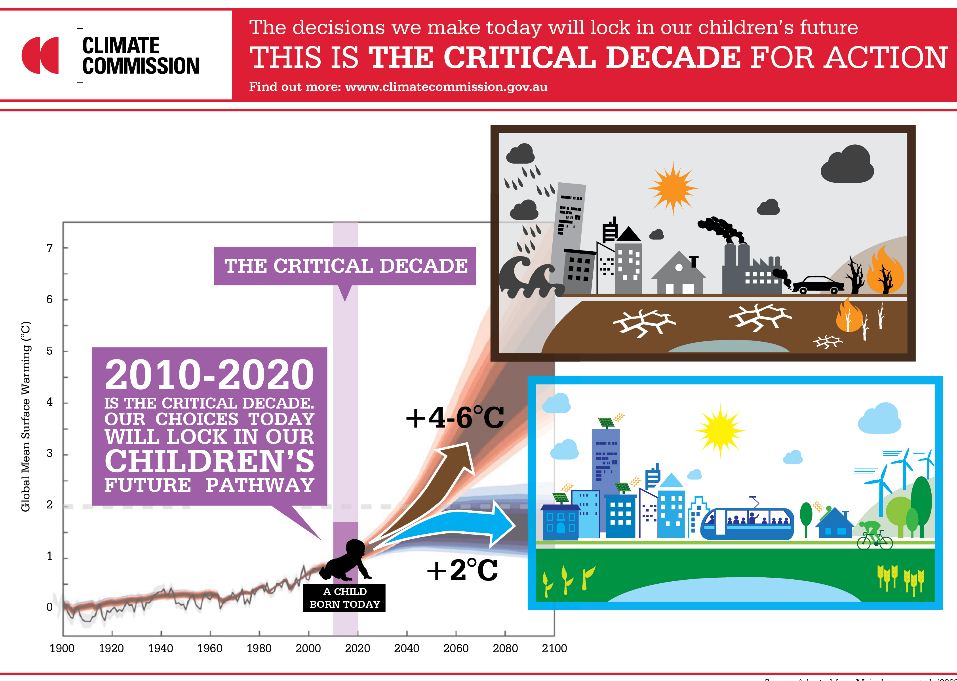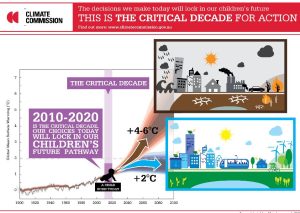
80% of Fossil Fuels ‘Should Stay in the Ground’
Australia’s Climate Commission, the official body that advises the country’s government, has warned that 80 per cent of global fossil fuel reserves will have to stay in the ground, if we are to avoid dangerous climate change.
 As world leaders gather at the G8 summit in Northern Ireland, tackling climate change is not even on the agenda.
As world leaders gather at the G8 summit in Northern Ireland, tackling climate change is not even on the agenda.
In fact the opposite will happen: Canada will use the meeting to push for the expansion of the tar sands. As I blogged last week, Canada’s Prime Minister Stephen Harper will lobby President Obama over the Keystone XL pipeline during the summit.
But a new report has been released by scientists that once again reveals the total folly of carrying on our fossil fuel dependence.
Australia’s Climate Commission, the official body that advises the country’s government, has just issued a stark warning that a whopping 80 per cent of global fossil fuel reserves will have to stay in the ground, if we are to avoid dangerous climate change.
It was only two years ago when the country’s Climate Commission released its first major report called ‘The Critical Decade’. And although we are only as quarter of the way through the decade, the Commission says that its original forecasts are now a reality and the scientific consensus is even stronger. The need for action is even greater.
In the last two years there have been more and more extreme weather events. “While extreme weather events have always occurred naturally, the global climate system is hotter and wetter than it was 50 years ago. This has loaded the dice toward more frequent and forceful extreme weather events,” says the report.
Since the first report, Australia has experienced record temperatures. As the report says “The Australian summer of 2012/2013 was remarkable in the number of high temperature records that were set and the intensity and extent of the extreme heat.. The number of record hot days has more than doubled in Australia in the last 50 years.”
And it is not just in Australia. Professor Will Steffen, one of the co-authors of the report, points out that there have been “Heatwaves in Europe, heatwaves in Russia, heatwaves in the US during the last decade.” There has been “Heavy rainfall, a warming climate, more evaporation from the ocean, more water vapour in the atmosphere and more rain,” he says.
Professor Steffen argues that, by the end of this decade, global emissions need to be coming down. “We have to get global emissions trending downward by the end of the decade to have any reasonable chance of meeting that 2 degree target. We need to make the right investment decisions,” he said.
That means that we cannot carry on investing in fossil fuels, regardless of whether it is Australia coal, Canadian tar sands or American shale oil. “We have to leave most of the fossil fuels in the ground and of course that has obvious implications for investment decisions this decade,” says Professor Steffen.
Another co-author of the report, Professor Lesley Hughes, says the maths are simple: “In order to achieve that goal of stabilising the climate at 2 degrees or less, we simply have to leave about 80 per cent of the world’s fossil fuel reserves in the ground” she argues. “We cannot afford to burn them and still have a stable and safe climate.”
Such is the madness of the climate politics in Australia that the report could well be the last from the Commission. If Opposition leader Tony Abbott wins the election he has said he will scrap the Commission.
Meanwhile, at the G8 the report should make some sobering bed-time reading for the world leaders. And if we President Obama needed a report to justify saying No to KXL, this is it.Because that is exactly the type of investment decision the scientists are talking about.
Read a summary of the report here.
